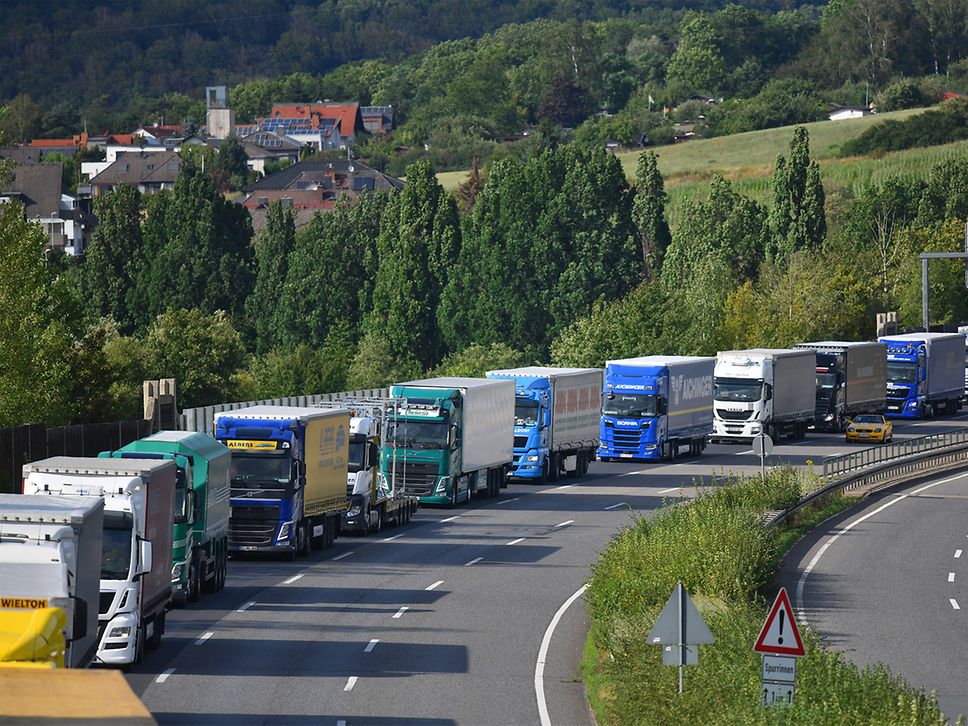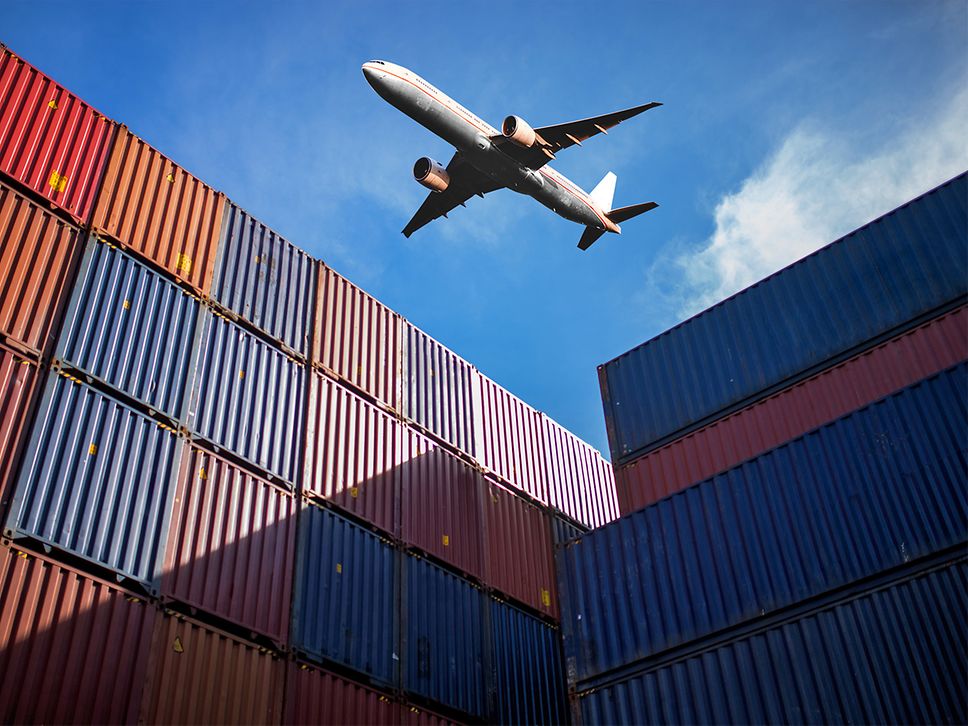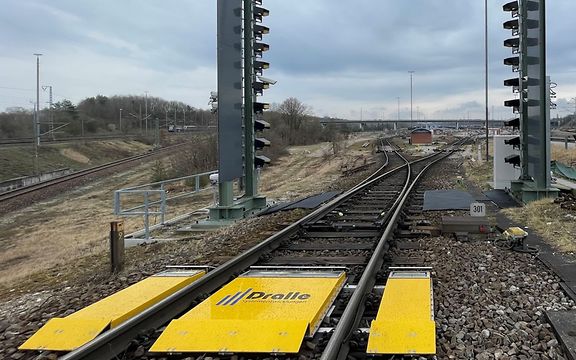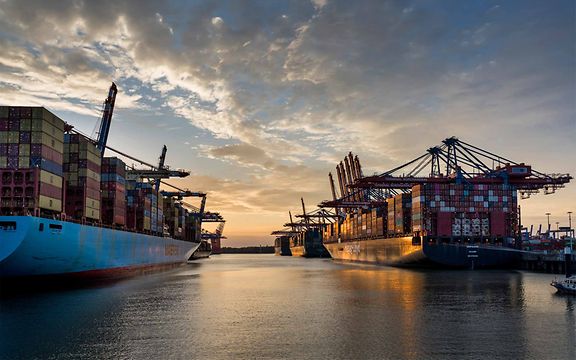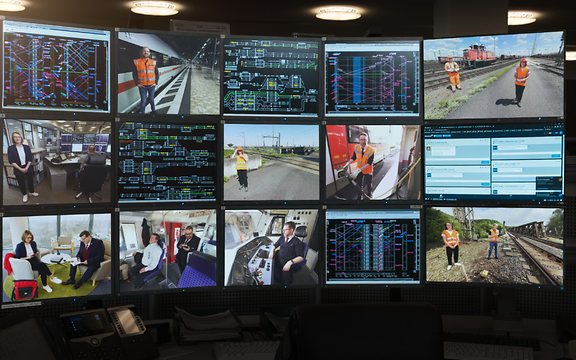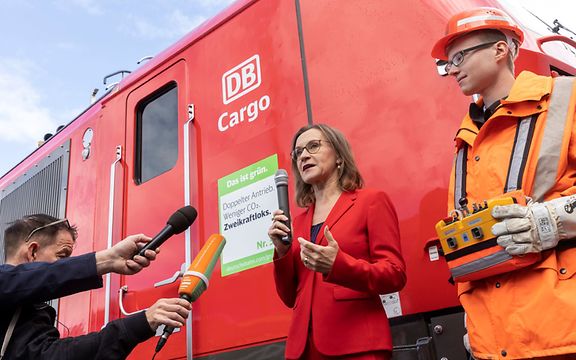In 2020, the logistics industry suddenly faced a host of never-before-seen challenges. All at once, supply chains and flows of goods as we had known them ground to a halt. One reason for this was that plants in China had closed and production had come to a standstill. Many industries had trouble procuring goods and supplier parts as they usually would. The automotive industry, which relies on just-in-time deliveries, was hit especially badly by supply chain disruption, forcing it to reign in production. In most European countries, border controls led to traffic back-ups and delays.
Coronavirus caused revenues to plummet for many logistics specialists
The German Chamber of Commerce and Industry estimates that one out of every four companies in Germany have suffered a decline in revenues of more than 50% due to the coronavirus pandemic. More than 90% of German companies have experienced a significant negative and ongoing impact. The audit firm PricewaterhouseCoopers (PwC) initially forecast that gross value creation in European freight transport and in logistics would fall precipitously by 8.6%.
It's no wonder that logisticians had few reserves of optimism as 2021 rolled around. According to Statista, just under 70% of those surveyed in January 2021 believed that the impact of the coronavirus on their logistics company would be strong or very strong over the next three months. Yet, in the face of the pandemic, the industry is in surprisingly good shape. Today, there's no question that supply chains have outsmarted the coronavirus. Logistics experts have found clever solutions to ensure goods keep flowing. DB Cargo arranged additional trains to carry pasta from Italy, while air freight providers repurposed passenger aircraft to transport masks and medications. Even vaccine delivery went off without a hitch. Many companies are even anticipating growth.
Varying impact on logistics companies
Pierre Timmermans is the Management Board member for Sales at DB Cargo. "Covid-19 sent a shock wave through many logistics systems – the large number of border closings posed an enormous challenge," he says "Improvisation became the order of the day, and freight trains emerged as the number-one alternative to lorries. In future, supply chains will have to become even more resilient." Each branch of the logistics industry has experienced the strains and impact of the pandemic in different ways. Right from the start, DB Cargo created a hotline and made it easy for anyone to switch transports to the rail network. One solution that received extensive media attention was DB Cargo's pasta trains, which transported noodles from Italy to Germany. DB Cargo's freight services were also used to ship goods in the other direction, such as packaging materials or the pulp used as a raw material in the manufacture of hygiene products.
Impact of Covid-19 on road transport
Road haulage was hit particularly hard by pandemic-related restrictions. Border controls caused traffic to back up, which led to delays – lorries were forced to wait up to 15 hours at the border between Poland and Germany. Many lorry drivers also had to quarantine for 14 days when they returned home to Poland, meaning German companies had to look elsewhere for personnel. In many cases, lorry drivers were not permitted to drive onto factory premises and had to improvise to unload their cargo. In the second half of 2020, the International Road Transport Union (IRU) estimated the losses at EUR 550 billion. Now, however, all signs are pointing to growth. Germany's federal association of freight forwarders (Bundesverband der Spediteure) anticipates higher revenues in 2021. Even so, the pandemic has made it difficult to predict the future. One important issue which freight forwarders and road logistics experts still need to address is the shortage of drivers.
Impact of Covid-19 on air and ocean freight
While air freight benefitted somewhat from increased demand for masks and vaccines, it still suffered significantly due to border closures, lower overall demand and production stops. As a result, freight charges rose, and there were few options for rapidly transporting urgently needed goods over long distances. Many ports were closed for business, too. Many Italian ports were shuttered when the widespread outbreak of the coronavirus began. Hamburg-based Container Xchange also reported a shortage of freight containers in Europe, while mountains of containers accumulated at Chinese shipping companies. Rising transport prices and a shortage of empty containers were commonplace in Germany, too.
Impact of Covid-19 on rail freight transport
By contrast, the railway experienced relatively little disruption from the pandemic. Special rail traffic solved the problems faced by many companies. Where lorries were caught in traffic jams, for example, Deutsche Bahn helped by providing freight transport for food items needed by supermarkets. As the borders closed across Europe, the situation played to rail transport's strengths. One example was DB Cargo's single wagonload transport service, which is unique in Europe and can be used to transport even small quantities by rail. Another advantage is that the railway can transport large quantities contact-free, even over long distances, thanks to the significantly smaller workforce required and the stable routes running right across Europe. Even so, the pandemic left its mark on Europe's largest freight operating company. Many of its customers come from the automotive and steel industries, two sectors which saw revenues plummet last spring, with follow-on effects for logistics providers. After all, companies which aren't producing anything have nothing to transport. Sixty percent of all of DB Cargo's freight trains cross at least one border and, since trains need fewer customs procedures and coronavirus tests, the railways have not experienced any traffic jams at the borders. A freight train can replace up to 52 lorries, which translates into a single coronavirus test rather than 52. What is more, DB Cargo can quickly arrange a train driver changeover at the border if the need arises. These advantages have kept rail-based supply chains stable.
Digitalisation, nearshoring and sustainability are critical for the future
Setting aside its effects on individuals, the coronavirus pandemic has led to developments that will affect all logistics providers in important ways. Many companies have become aware that their supply chains are susceptible to crises – and that they are dependent on individual suppliers, for instance those in China. "We've noticed that large companies are shifting their production closer to Europe's borders, showing a preference for the Middle East over Asia. I've identified nearshoring as a clear trend in the logistics industry as a result of the coronavirus pandemic," says Timmermans. Diversified supply chains which use a combination of global and local suppliers and have shorter value-added chains can provide added resilience. "This is how the supply of basic goods has been ensured even during the pandemic. Every crisis also presents an opportunity. In recent months, we've transported many goods that we hadn't seen on the railways for a long time. We are working hard to ensure these transports remain with us. In the meantime, we are making more preparations to handle growing rail freight volumes. For example, we have continued to hire new employees."
Most experts also agree that the pandemic will boost digitalisation in the logistics sector. As cost pressure increases, internal company processes must become more efficient. Companies have many options for making their logistics more resilient in crisis, including investing in digital technologies to track supply chains, introducing digital inventory forecasting and dispatch and implementing comprehensive capacity planning. Even so, Timmermans has identified yet another aspect which companies will need to consider. "Businesses must make their logistics and supply chains more sustainable. In the medium term, this will reduce expenses even further, for instance by lowering energy costs," he says. However, according to Timmermans, sustainability is not just something companies should want; it's something they need, regardless of the pandemic's impact. The European Green Deal and German legislation – such as the new law on carbon pricing – are making it mandatory. The time is ripe to rethink supply chains.

